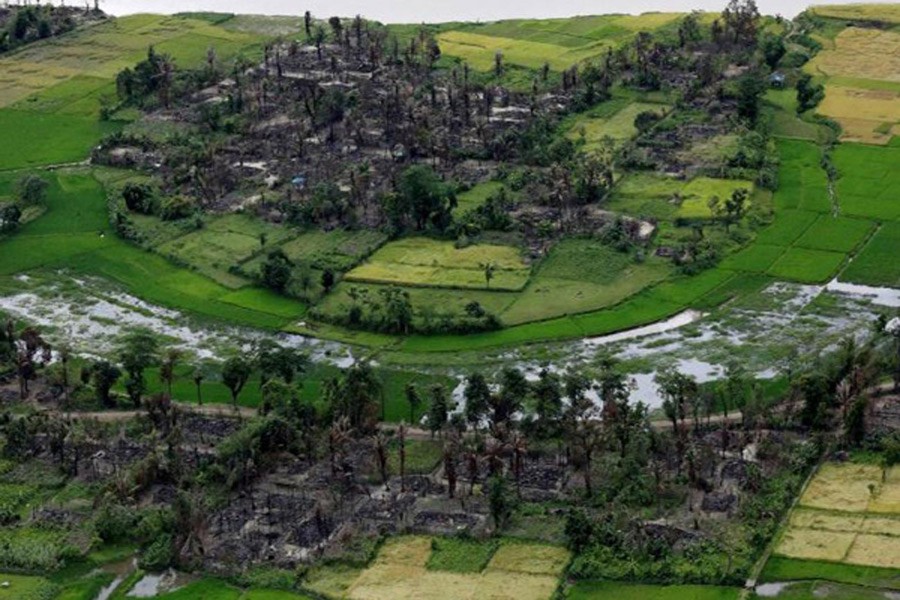Rohingya Muslim insurgents said on Sunday they have no option to fight what they called Myanmar state-sponsored terrorism to defend the Rohingya community, and demanded that the Rohingya be consulted on all decisions affecting their future.
The Arakan Rohingya Salvation Army (ARSA) launched raids on the Myanmar security forces on Aug. 25, which sparked sweeping counter-insurgency operations in the Muslim-majority north of Rakhine State that led to widespread violence and arson and an exodus of some 650,000 Rohingya villagers to Bangladesh.
The United Nations condemned the Myanmar military campaign as ethnic cleansing. Buddhist-majority Myanmar rejected that.
But since the August raids, the small insurgent group has launched few if any attacks until Friday, when its fighters ambushed a Myanmar military truck, wounding several members of the security forces.
“ARSA has ... no other option but to combat ‘Burmese state-sponsored terrorism’ against the Rohingya population for the purpose of defending, salvaging and protecting the Rohingya community,” the group said in a statement signed by leader Ata Ullah and posted on Twitter.
“Rohingya people must be consulted in all decision-making that affects their humanitarian needs and political future.”
The ARSA claimed responsibility for the Friday ambush but gave no details of the clash.
A Myanmar government spokesman said the insurgents were trying to delay the repatriation of refugees from Bangladesh under a plan the two governments have been working on.
“ARSA aims to frighten those who are considering returning, to show the region doesn’t have peace,” Zaw Htay said.
Myanmar and Bangladesh have been discussing a plan to repatriate the refugees but more insecurity in Myanmar is likely to raise even more doubts about how quickly that might happen, reports Reuters.
The refugees complain that they have not been consulted on the plan.
FIGHT TO THE END
Details of the repatriation plan have yet to be finalised and many questions remain, not only about security but also about the terms refugees will return under, and whether they will be able to go back to their homes or be resettled in camps.
Rohingya have for years been denied citizenship, freedom of movement and access to services such as healthcare. Myanmar regards them as illegal immigrants from Bangladesh.
Zaw Htay rejected the ARSA call for the Rohingya to be consulted saying the government was already negotiating with leaders of both the Buddhist and Muslim communities.
“We will not accept terrorism and fight against them until the end,” the spokesman said.
The ARSA dismisses any links to Islamist militant groups and says it is fighting to end the oppression of the Rohingya people.
A military spokesman declined to make any immediate comment about the security situation in the north of Rakhine State.
The area is largely off-limits to reporters.
Serious communal violence between Rohingya and ethnic Rakhine Buddhists erupted in 2012 and sporadic unrest followed.
The violence that began in August and the refugee crisis it caused has drawn international condemnation and raised doubts about Myanmar’s transition to democracy after nearly 50 years of military rule.
ARSA did not say where leader Ata Ullah was but Myanmar suspects the insurgents flee into Bangladesh then slip back into Myanmar to launch attacks.


